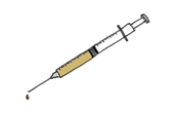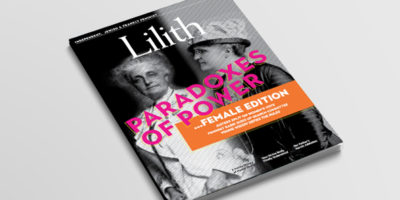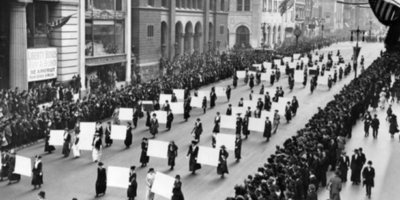
How a Father’s Addiction Formed a Jewish Feminist
Activism for just causes is part of my Jewish tradition. I wasn’t given a Jewish education; such education was reserved for my brother. But I became interested in Judaism through the women’s movement and its consciousness-raising, to which I gravitated because I was the daughter of a Jewish heroin addict.
Feminism helped me understand why my mother persisted in her relationship with my father, despite the many tragic ups and downs caused by my father’s addiction. Through the women’s movement and my career teaching courses in women’s studies, I came to have greater compassion for the limitations my mother experienced from not having completed high school in the 1930s and being required by her father to go to work to contribute to the family income during the Great Depression. There were many times, as an adolescent, when I wondered why my mother didn’t try to strike out on her own and leave my father, whose addiction dated from 1939 until his death from an overdose in 1963.
It was only after studying and teaching some of the foundational texts of the second-wave women’s movement in the 1970s and early 80s, such as Shulamith Firestone’s The Dialectic of Sex, Louise Bernikow’s The World Split Open, Tillie Olson’s Silences, and Vivian Gornick’s Woman in Sexist Society, that I noticed these women—who analyzed women’s subordinate role in the workplace and their lack of autonomy, especially after World War II—all came from Jewish backgrounds. Was it something about their being raised Jewish, I asked myself, that contributed to their sense that the world could be a better place and that women could be empowered? Did my own mother simply lack the education, whether secular or Jewish, to make her way in the world with confidence as an independent woman?
My questions were answered when more and more feminists were openly identifying as Jewish in the 1980s and 90s—writers, labor leaders, politicians, historians, theologians. I devoured the books they were writing that critiqued the absence of women in the written canons of Jewish culture and thought. Reading them taught me the treasure trove of wisdom in Jewish tradition. Too bad, I thought, my mother didn’t have the benefit of such learning. I was determined not to be trapped in a situation similar to hers. Education had been my key. Now I wanted to be a college teacher of Jewish women’s studies.
My impulse toward activism would keep me up at night. A phrase from the 1960s lingered in my mind for decades. “If you’re not part of the solution, you’re part of the problem.” The world’s ills are my responsibility. Why? I didn’t fully understand why I took political issues to heart in the intense way that I did.
I came to understand the connection between my emotional intensity and my politics only later in life, after writing about my father’s heroin addiction and attending Twelve Step meetings. In particular, a scene from childhood kept repeating in my thoughts and fears. I witnessed, when I was eight years old, my father assaulting my mother in order to obtain the rent money she was withholding. Urgently, he had to have those savings for the heroin fix he needed. I saw him cry and wail like a baby, a baby who became a monster. The torment I felt because I could not save my mother from danger and pain was tremendous. That need to save my mother motivated me to save other women from torture. My need became a life-long goal.
Knowing where my passion for activism comes from doesn’t diminish my desire to work for good. Because I understand myself better, I can be kinder to myself, and relieve myself when I take on too much responsibility. I can appreciate that social change is a slow and long-term process, and that moving mountains requires mass movements.
Sharon Leder taught English, women’s studies and Jewish studies on several campuses of the State University of New York before beginning the second half of her life as a fiction writer and poet. Her novel, The Fix, came out in May. More at SharonLeder.com.



